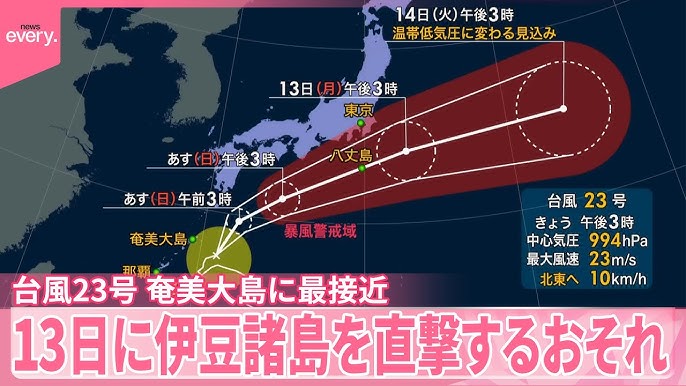Japan's Meteorological Agency has issued a warning that Typhoon No. 23 (also known as Typhoon Yutu), currently building strength in the Pacific, is likely to directly hit the Izu Islands. The timing and exact trajectory remain uncertain, but the agency’s latest models suggest a possible landfall in the coming days. The residents of the Izu Islands are being advised to stay updated on the typhoon's track and prepare for potential evacuation orders.
Japan is often affected by typhoons, so there is a deep societal respect for the power of nature and the importance of disaster preparedness. Comprehensive information systems are in place, including early warning alerts, evacuation plans, and post-disaster recovery programs. Much care is taken to prepare and protect businesses, infrastructure, and especially vulnerable citizens like the elderly.
The response in Japan to typhoons is similar to how hurricanes are handled in the US or EU. There is a strong focus on predictive meteorology, early warnings, and ensuring the safety of residents. But Japan’s almost routine encounters with typhoons have resulted in arguably one of the most robust disaster prevention and response systems in the world.

